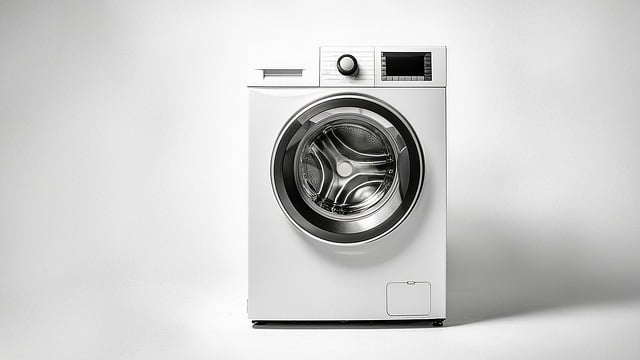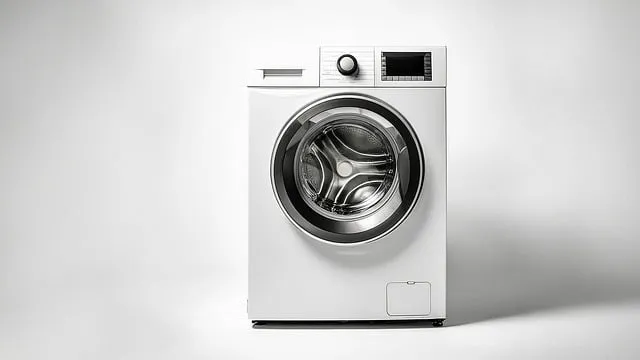What’s the Correlation Between Dryer Noise and Energy Consumption?
Firstly, let’s get into the nitty-gritty. A noisy dryer isn’t just a nuisance—it can be a sign that it’s working harder than it should. Think of your dryer like a car engine. When an engine is out of tune, it makes more noise and burns more fuel. Similarly, a dryer that’s making a racket might be struggling with internal issues like worn-out bearings, a clogged vent, or an imbalanced drum. These problems force the dryer to use extra energy to get the job done, which translates to higher utility bills.
Now, picture your dryer as a high-performance athlete. If it’s healthy and well-maintained, it’s smooth and efficient. But when it’s not, it’s like running a marathon with a weight vest—more effort for less output. A dryer that’s in tip-top shape will use energy more efficiently and produce less noise. Conversely, when it’s struggling, it not only makes a lot of noise but also consumes more energy to dry your clothes.
Ever notice how a quiet dryer seems to finish its cycle faster? That’s not just your imagination. A well-functioning dryer that isn’t overworked can complete drying cycles more efficiently, using less energy in the process. So, if your dryer is loud and seemingly working overtime, it’s likely a signal to check its components and possibly schedule a maintenance check.
In essence, the correlation between dryer noise and energy consumption is pretty straightforward. A noisy dryer is often an inefficient one, and addressing the noise could mean a reduction in your energy bills.
Silent Spin: Does Your Dryer’s Noise Level Reveal Its Energy Efficiency?
Let’s break it down. Dryers with lower noise levels are often marketed as being quieter and sometimes more advanced. You might assume that a quieter dryer means it’s using energy more efficiently because it’s working more smoothly. However, the noise level alone doesn’t necessarily reflect energy efficiency. Instead, it’s more about the design and technology behind the appliance.
A dryer’s noise level is influenced by several factors, including its motor, drum design, and insulation. Newer models often come with advanced technology that can make them quieter, but these features don’t always translate to lower energy consumption. For instance, some dryers use soundproofing materials to reduce noise, but they might not be the most energy-efficient ones on the market.
To truly gauge a dryer’s energy efficiency, look for the Energy Star label. This certification means the appliance meets specific energy-saving criteria, regardless of how much noise it makes. You can also check the dryer’s energy consumption details in the user manual or on the manufacturer’s website.
In summary, while a quieter dryer might seem like it’s more advanced or efficient, don’t be fooled by the silence alone. Instead, focus on energy ratings and specifications to ensure you’re getting an appliance that’s both eco-friendly and cost-effective.
Whispers vs. Roars: How Dryer Noise Could Indicate Higher Energy Bills
Imagine your dryer as a car engine. If your car is sputtering or making loud noises, it’s likely a sign that something’s wrong under the hood. Similarly, if your dryer is making more noise than usual, it might be struggling to work efficiently. Whispers from your dryer, like a soft hum or gentle spin, usually mean everything’s running smoothly. However, if your dryer starts roaring or clanking, it’s a red flag that it’s working harder than it should.
Why does this matter for your energy bills? Well, when your dryer has to work extra hard, it uses more electricity. Picture it this way: a smoothly running dryer is like a well-oiled machine, gliding through a job with ease. On the other hand, a loud, malfunctioning dryer is like a rusty old bike struggling up a hill—it needs more power to get the job done.
The louder the dryer, the more likely it is that something inside is off-kilter. Common culprits include clogged vents, worn-out drum bearings, or loose belts. These issues force your dryer to consume more energy to maintain its performance. Over time, this can lead to a noticeable bump in your electricity bill.
So, if your dryer’s noise level shifts from a soothing whisper to an annoying roar, it might be time for a check-up. Addressing these issues early can save you from costly energy bills and keep your dryer humming happily along.
Decibels and Dollars: Uncovering the Link Between Dryer Sound and Power Usage
Imagine your dryer as a performer on stage. The louder it is, the more energy it’s likely consuming, and here’s why: sound is a byproduct of the mechanical processes inside the dryer. When a dryer is running at peak noise levels, it’s often a sign that components like the motor or drum bearings are working harder than usual. This extra effort translates into increased energy use, and yes, that means higher utility bills.
Think of it this way—just like a car that roars loudly might be burning more fuel, a noisy dryer is probably guzzling more electricity. When parts become worn or misaligned, they have to strain more to function, causing the dryer to draw more power. This not only makes your dryer less efficient but can also lead to costly repairs if left unchecked.
So, how do you keep those decibels—and your energy bills—in check? Regular maintenance is key. Cleaning lint filters and checking for loose parts can make a big difference. Also, consider investing in a quieter, more energy-efficient model if your current dryer is on its last legs. It might cost more upfront, but the savings in energy bills and the reduction in noise can make it a sound investment in the long run.
In short, keeping an ear out for excessive noise could be your wallet’s best friend. It’s a simple way to ensure your dryer runs smoothly and efficiently, saving you both decibels and dollars.
Is Your Loud Dryer Eating Up More Energy? The Surprising Connection Revealed
Here’s the scoop: when your dryer is loud, it often means that internal parts are wearing out or misaligned. For example, a squeaky drum could signal worn-out bearings or a malfunctioning belt. These issues force your dryer to work harder, which means it’s using more electricity to get the same job done. It’s like trying to run a marathon with a broken leg—lots of effort, but not very effective.

Another thing to consider is lint buildup. Over time, lint accumulates and can obstruct airflow. This means your dryer has to run longer and harder to dry your clothes, which directly impacts your energy usage. Just like trying to breathe through a straw, your dryer struggles and ends up using more power.
Maintenance matters too. Regularly cleaning out the lint filter and ensuring the vent hose is clear can make a big difference. If you neglect these tasks, your dryer’s efficiency plummets, leading to higher energy consumption. It’s a simple fix with a significant payoff—much like tuning up a car to improve fuel efficiency.
In essence, a loud dryer isn’t just annoying; it’s a sign that your energy bills might be getting a workout too. Taking a closer look at those rumblings could save you both hassle and cash in the long run.
From Quiet to Noisy: The Impact of Dryer Sound on Your Energy Consumption

Let’s dive into the connection between dryer noise and energy consumption. Picture this: if your dryer is making a racket, it could be struggling with worn-out parts or internal issues. These problems can force your dryer to work harder and use more energy to get your clothes dry. It’s like trying to run a marathon with a heavy backpack—inefficient and exhausting.
Think of the dryer’s sound as a warning signal. A loud, rumbling dryer often means it’s out of balance or has issues like a faulty drum roller or a loose belt. These issues can cause the dryer to consume more energy than usual. If your dryer sounds like a jet engine, it’s time for a check-up.
Regular maintenance can quiet things down and make your dryer run more efficiently. It’s like tuning a car’s engine: a well-maintained dryer will run smoother, use less energy, and extend its lifespan. So, next time your dryer starts to sound like a symphony of clanks and whirs, remember, it’s not just noise—it’s a sign that your energy bills might be creeping up.
In essence, that seemingly harmless noise could be your dryer’s way of hinting at higher energy consumption. Keeping an ear out for changes in sound might just save you some extra cash on your electricity bill while keeping your clothes fresh and clean.
How Much Noise Is Costing You? Exploring the Relationship Between Dryer Volume and Energy Use
Picture this: you’re in your living room, binge-watching your favorite show, when suddenly, your dryer kicks into high gear. It sounds like a jet engine, right? But did you know that this noise isn’t just an annoying disturbance—it’s also a sign of inefficiency? That’s right. The louder your dryer, the more energy it might be consuming.
Think of your dryer like a car engine. A smooth, quiet engine runs efficiently, while a noisy one could be a sign of underlying issues, like worn-out parts or inefficient operation. Similarly, a loud dryer can indicate problems such as an unbalanced drum, worn-out bearings, or even a clogged vent. These issues force the dryer to work harder, consuming more energy and driving up your electricity bill.
Here’s the kicker: a dryer that makes a lot of noise could be using 20% more energy than a quieter model. Imagine the impact over a year. That extra energy not only costs you more but also strains the environment. So, it’s worth considering regular maintenance or investing in a new, quieter dryer that operates efficiently.
Besides, think of it as an investment in peace of mind. A quieter dryer means less noise pollution in your home, and you can rest easy knowing you’re saving on energy costs. It’s a win-win!
So next time you hear that loud clattering, don’t just think of it as an annoying sound. Instead, consider it a potential signal to check your dryer’s efficiency. Your wallet—and your ears—will thank you.
Is a Noisy Dryer a Power Guzzler? Investigating the Correlation Between Sound and Efficiency
Think of your dryer as a car engine. When a car starts making unusual noises, it could mean it’s struggling or something’s not right under the hood. Similarly, a dryer that’s making a lot of noise might be signaling that something’s off. However, noise doesn’t always mean inefficiency. In fact, the sound can come from various parts—like a loose drum belt, worn-out bearings, or even a clogged lint filter.
Here’s the kicker: a noisy dryer doesn’t necessarily translate to high energy consumption. Modern dryers are designed to be more energy-efficient, even if they’re not whisper-quiet. Energy consumption is more closely related to the dryer’s age, technology, and maintenance. Newer models often come equipped with advanced technology that optimizes drying cycles, which means they can dry your clothes efficiently while still making some noise.
On the flip side, if your dryer is older or not well-maintained, that’s when you might see a spike in your energy bill. A dryer that’s struggling to work properly might run longer cycles, thereby using more power. Think of it like a car that’s having trouble starting—it uses more fuel trying to get going.
So, while a noisy dryer might be annoying, it doesn’t always mean you’re wasting energy. The key is to keep it well-maintained and check if any loud noises are a sign of a problem that could affect its efficiency.

